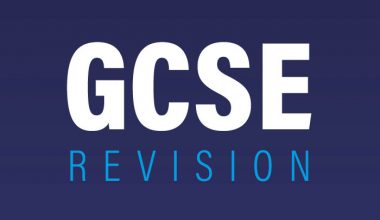One of the greatest opportunities you can receive in life is the opportunity to study in the UK. The UK is reputed to be one of the best places in the world to pursue an academic dream. To achieve that, it all starts with taking and passing crucial exams like GCSEs.
GCSE exams have various boards offering qualifications in different subjects. Thus, you need to know the guide to GCSE exams, their pass rate, and their unique features.
This writing will explore the major exam boards handling the development and administration of GCSEs, their popularity and unique features, and their pass rates. It will also look at their question styles, course content, and resources that students and teachers can take advantage of.
Table of contents
What are GCSE Exam Boards?
GCSE exam boards are organizations responsible for designing, developing, and overseeing the General Certificate of Secondary Education (GCSE) qualification assessment framework.
These qualifications are a cornerstone of secondary education in many countries. GCSE exam boards create syllabi, set exam papers, and determine the grading criteria for various subjects.
Students typically take GCSE exams at the end of their secondary schooling, usually around 16.
The main exam boards, such as AQA, Edexcel, OCR, WJEC, and CCEA, provide a range of subjects from sciences to humanities, allowing students to tailor their studies to their interests and career aspirations.
Because these boards influence educational trajectories, understanding their role is essential for students, parents, and educators.
You may want to know Why Many Fail GCSE Exams in 2024
Most Popular GCSE Exam Boards
AQA (Assessment and Qualifications Alliance):
AQA is one of the most popular GCSE exam boards due to its extensive range of subjects and well-established reputation. It offers a broad spectrum of subjects, appealing to students and schools.
AQA’s clear and concise exam papers and user-friendly assessment criteria are favored by many educators and students alike.
Edexcel (Pearson Edexcel):
Edexcel is renowned for its international recognition and flexible assessment options. Its GCSE offerings encompass diverse subjects, and the board’s user-friendly online resources have contributed to its popularity.
Edexcel also offers modular assessments for some subjects, allowing students to retake specific modules to improve their grades.
OCR (Oxford Cambridge and RSA Examinations):
OCR’s distinctive feature lies in its commitment to innovative assessment methods. It’s popular for subjects like Computer Science and Media Studies due to its forward-thinking approach.
OCR’s emphasis on practical and real-world applications within its assessments appeals to students with a hands-on learning style.
WJEC (Welsh Joint Education Committee):
WJEC is a favored choice in Wales due to its focus on catering to the unique needs of Welsh students. Its qualifications often include content that aligns with Welsh culture and history.
This localized approach has earned WJEC popularity among schools in Wales, enhancing its recognition and uptake.
Also, see; Sixth Form Explained: from GCSEs to A-levels in 2024
The Difference Between the GCSE Exam Boards
The GCSE exam boards, including AQA, Edexcel, OCR, WJEC, and CCEA, exhibit nuanced differences that influence their popularity and students’ and educators’ preferences.
Understanding these distinctions can aid in making informed decisions regarding subject choices and exam preparations. Here’s a detailed breakdown of the differences between these exam boards:
Subject Offerings:
Each exam board offers a range of subjects, but the specific subjects and their content can vary. While core subjects like English, Mathematics, and Science are common across all boards, variations exist in optional subjects.
For instance, AQA might have a wider selection of humanities subjects, while Edexcel might excel in business-related subjects.
Assessment Methods:
Exam boards employ different assessment methods. AQA, for instance, is known for straightforward and clear exam papers that test students’ knowledge and understanding.
On the other hand, OCR is known for incorporating innovative assessment techniques, particularly in subjects like Computer Science, where practical programming skills are evaluated.
Grading System:
The grading systems can vary, affecting how students’ achievements are recognized. Edexcel, for instance, uses the familiar A*-G grading, while other boards might employ numerical grading systems.
Familiarity with the grading structure can help students and parents understand their performance more accurately.
Online Resources:
The availability and quality of online resources can differ among exam boards. Edexcel is often praised for its comprehensive online resources that aid teachers and students.
These resources can include study materials, past papers, and interactive learning tools.
Accessibility and Inclusivity:
Some exam boards emphasize accessibility and inclusivity more than others. WJEC, for instance, focuses on creating materials that reflect Welsh culture and history, ensuring relevance for Welsh students. This localized approach contributes to their popularity in Wales.
Retake and Modular Options:
The opportunity for retakes and modular assessments varies. Edexcel offers modular options in certain subjects, enabling students to retake specific units for improvement.
This flexibility can benefit students aiming to enhance their overall grades.
Teacher Support:
Exam boards often provide support and training for teachers. AQA, for example, offers teacher workshops and resources that aid in effective curriculum delivery.
The availability of such support can influence a school’s preference for a particular board.
Regional Focus:
CCEA primarily serves Northern Ireland, tailoring its subjects and qualifications to align with the local curriculum and educational context.
This regional focus enhances its standing within Northern Ireland.
Who Chooses Your GCSE Exam Boards?
The selection of GCSE exam boards is often a collaborative decision involving students, parents, and schools.
While schools ultimately choose the exam boards they offer, students and parents often provide input, considering factors such as subject preferences, teaching quality, and exam board reputation.
Schools typically consider their resources, the expertise of teachers, and alignment with the school’s educational philosophy when making this choice.
The goal is to provide students with a well-rounded education that suits their interests and strengths while ensuring the curriculum meets national standards and requirements.
What to Know Before Choosing Exam Board for GCSE
Several crucial aspects warrant consideration before selecting an exam board for GCSEs. First, assess the subjects offered by each board, ensuring they align with your interests and future aspirations.
Research the assessment methods employed – some emphasize coursework, while others rely more on exams. Review the grading system to understand how your achievements will be recognized.
Investigate the availability of online resources and teacher support, as these can greatly aid your studies.
Moreover, consider each board’s reputation and track record in delivering fair and reliable assessments.
Lastly, consult with teachers, parents, and peers for insights and recommendations. This will help you make an informed decision that aligns with your learning style and goals.
Also, see; When Should You Start Revising for GCSEs?
The Hardest GCSE Exam Board
Based on the percentage of students passing Grade 4, AQA emerges as the most challenging GCSE exam board for Mathematics, while OCR is regarded as the least demanding.
AQA’s stringent evaluation criteria and rigorous assessment structure contribute to its higher standard. This exam board emphasizes thorough comprehension and application of mathematical concepts, leading to a lower percentage of students achieving the required grade.
In contrast, OCR’s approach may incorporate a more lenient assessment style or content selection, resulting in a higher proportion of students passing.
While these distinctions reflect differing difficulty levels, it’s crucial to acknowledge that individual learning styles and teaching approaches also impact students’ performance across various exam boards.
The Hardest GCSE Exam Board for English Language
Examining pass rates and exam structures provides valuable insights into analyzing the perceived difficulty of GCSE English Language across exam boards.
While the pass rates offer a perspective on difficulty, it’s important to acknowledge that other factors can contribute.
This year, WJEC appeared to be the most challenging board for GCSE English Language, with the lowest percentage of students achieving a C or above, at 65.3%.
The pass rates for other boards are as follows: AQA at 70.5%, Pearson Edexcel at 67.3%, OCR at 82.18%, and CCEA at 88.7%.
Exam structures also impact the perception of difficulty. AQA, Pearson Edexcel, OCR, and WJEC each offer two written exams and a spoken language component, with varying maximum marks. AQA, OCR, and WJEC set their maximum marks at 160, while Pearson’s Edexcel has 160 and 240 for its two exams.
This holistic evaluation underscores the multifaceted nature of difficulty assessment, considering pass rates and exam formats.
The Hardest GCSE Exam Board for English Literature
Reviewing pass rates and exam structures yields valuable insights into the perceived difficulty of GCSE English Literature across different exam boards.
For the Summer 2022 exams, it’s evident that WJEC stood out as the most challenging board for GCSE English Literature, marked by the lowest percentage of students achieving a grade C or above, at 70.7%. Other pass rates include AQA at 77.4%, Pearson Edexcel at 79.2%, OCR at 86.46%, and CCEA at 98.8%.
Exam structures also contribute to the perceived difficulty. AQA, Pearson Edexcel, and OCR each offer two exams, with maximum marks ranging from 160 to 158.
WJEC stands out with three exams and 158 marks, while CCEA employs a mix of two exams and controlled assessment and has 180 marks.
Considering both pass rates and exam formats, a comprehensive understanding of the varying difficulty levels emerges.
The Hardest GCSE Exam Board for Maths
When evaluating the difficulty of GCSE Maths across various exam boards, considering pass rates and exam formats provides insights. While pass rates alone may not fully determine difficulty due to multiple factors at play, they offer a perspective.
This year, WJEC appears as the “hardest” board, with the lowest pass rate for students achieving a grade 4/C or above, at 56.9%. The pass rates for other boards are AQA at 63.5%, Pearson Edexcel at 65.9%, OCR at 67.68%, and CCEA at 79.9%.
Exam formats also contribute to the perception of difficulty. AQA, Pearson Edexcel, and OCR all offer three exams with different calculator usage, while WJEC provides two (non-calculator and calculator).
The maximum marks vary, with OCR having 300 marks, WJEC ranging from 130 to 160, and the others at 240. This subjective assessment of difficulty based on pass rates and exam structure underlines the multifaceted nature of the concept.
The Hardest GCSE Exam Board for Combine Science
Assessing the difficulty of GCSE Combined Science across exam boards involves examining pass rates and the exam formats offered.
AQA’s “synergy” specification emerged as the most challenging for GCSE Combined Science, with a pass rate of 46%. Comparatively, AQA Trilogy, Pearson Edexcel, OCR, and WJEC had pass rates within 1% of each other, demonstrating similar difficulty levels.
The pass rates for each are as follows: AQA Trilogy at 60.8%, Pearson Edexcel at 61.1%, OCR at 60.77%, WJEC at 60.1%, and CCEA at 93.3%.
Subjective perceptions of difficulty vary, making it essential to form your opinion.
Evaluating exam formats provides additional insights into difficulty. AQA, Pearson Edexcel, OCR, and WJEC each offer six exams, while OCR’s A or B specification provides four.
Maximum marks range from 360 for OCR (A or B specification) to 60 marks each for others. CCEA offers seven exams and assessed practicals, with marks dependent on the tier.
A comprehensive evaluation of pass rates and exam formats helps gauge the difficulty of GCSE Combined Science across different exam boards.
Also, see: Top 10 Hardest GCSE Subjects | 2024 Ranking
What is the Most Common GCSE Exam Board?
The UK’s most common GCSE exam board is AQA (Assessment and Qualifications Alliance).
A significant indicator of its prevalence is that AQA offers more than half of the GCSE and A-Level qualifications in the country.
This widespread availability establishes AQA as the foremost choice among students and schools, making it the most popular exam board for GCSEs in the UK.
FAQs
Based on the percentage of students passing Grade 4, AQA emerges as the most challenging GCSE exam board for Mathematics, while OCR is regarded as the least demanding.
Singling out the “easiest” GCSE exam board is challenging as difficulty varies by subject and individual perspectives. OCR might be considered comparatively easier in some contexts.
The lowest GCSE grades are typically represented by U (Ungraded), indicating that a student did not meet the minimum requirements to pass the examination.
Conclusion
GCSE exam boards do not exist solely to tick boxes and mark scripts. The board you choose can influence your exam experience and potentially impact your results.
That’s why you must be acquainted with the GCSE exam boards to make an informed decision when choosing. With that knowledge, you can approach your exams with confidence.
References
- quora.com – What is the hardest/toughest GCSE exam board?
- piacademy.co.uk – Edexcel vs AQA vs OCR | GCSE Exam Boards Comparision
- gcse.co.uk – Why do GCSE exam boards differ?
- thinkstudent.com – Guide to GCSE Exam Boards:






